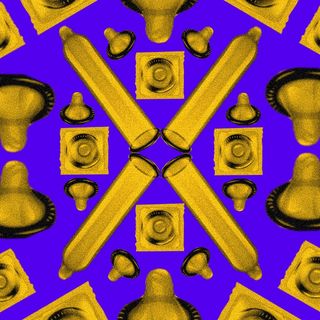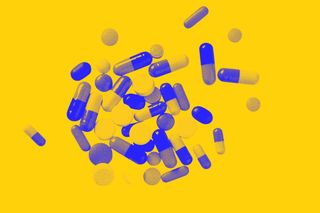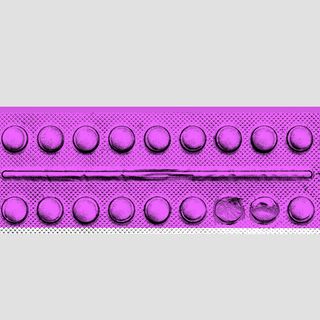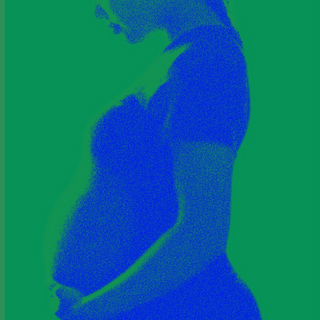
Do Antidepressants Really Reduce People’s Sex Drive?
For people who were already dealing with a poorer sex drive due to their depression, antidepressants might actually improve their libido.

Antidepressants are a ray of hope for 280 million people around the world affected by depression with sporadic respite. Among the reported side-effects of the medicines, however, is lower sex drive. The song, “Antidepressants Are So Not A Big Deal” from Crazy Ex-Girlfriend alludes to this: “Why should I feel crappy about something that makes me happy? Though it may be hard to maintain an erection…” From making it challenging to get aroused, sustain arousal, and even orgasm, selective serotonin reuptake inhibitors (SSRIs) — a class of commonly-prescribed antidepressants — have a reputation for the toll they take on people’s sex lives. But the actual impact is more complicated.
Just because one kind of SSRI lowers a person’s libido, doesn’t necessarily mean that other kinds of SSRIs — or antidepressants — would do that, too. At the same time, there are also drugs like bupropion, norepinephrine and dopamine reuptake inhibitors (NDRIs); mirtazapine, a tetracyclic antidepressant; vilazodone, and vortioxetine, that have been found to have the least effect on people’s sex drive.
“This is not a DIY project. You really need to work with the person who has prescribed it,” says Lauren Streicher, an ob-gyn and the founder and medical director of the Northwestern Medicine Center for Sexual Medicine and Menopause, further adding that, “It’s always tricky to know: Is the sexual dysfunction because of the depression itself or the drug?” In other words, it’s always advisable to seek a professional’s advice on adjusting one’s medication — be it through replacing it with a different antidepressant, switching to a mix of antidepressants, or simply, getting a prescription for a supplementary medication to tackle the side-effect of the antidepressant they’ve been prescribed.
According to The Pharmaceutical Journal, the number of antidepressant items prescribed rose by almost 35% from 61.9 million items in 2015-2016 to 83.4 million items in 2021-2022. Yet, it seems there’s no one-size-fits-all when it cones to antidepressant prescriptions. Turns out, for many people who were already dealing with a poorer sex drive due to their depression, antidepressants might actually improve their libido.
SSRIs in particular, however, are the most well-known type of antidepressants, leading to the widespread perception about their side effects. “SSRIs interfere with arousal and orgasm because they dampen dopamine, a neurotransmitter in the brain… [They] can interfere with libido, so that a patient has no or very little interest in sex. It can also make arousal slow and sluggish, so people have trouble getting excited about sex. And there are also well-documented effects on delayed orgasm, for both men and women. Some people are anorgasmic, or unable to reach orgasm, while on these medications,” Madeleine Castellanos, a sex therapist and functional medicine psychiatrist in Ney Work, explained.
Related on The Swaddle:
Benefits of New Ketamine‑Based Antidepressant Drug Outweigh Risks, Experts Say
Besides lowering dopamine, SSRIs also boost the levels of serotonin in a person’s body, enabling them to feel calmer. This sense of calmness, however, can also lower their libido by interfering with the body’s ability to become aroused. Moreover, even if an antidepressant doesn’t directly influence one’s libido, it can still disrupt their sex lives indirectly by causing weight gain, which can impact body image, thereby impacting their ability to enjoy sex. In addition, antidepressants can also breed sluggishness, nausea, and dizziness, impacting one’s stamina.
“I was struggling with really terrible anxiety and depression when I first started taking it, and it honestly changed my life, [but it has] basically decimated my libido. It’s pretty frustrating. I am currently single, but when your libido is at zero, it can be hard to muster up that extra incentive to go out on a date when you’d rather chill and stay home,” says Megan, a 35-year-old who is on a prescription of sertraline, a kind of SSRI, for three years now. She considered changing her meds, but then decided against it: “I don’t know if I want to go through the hassle of messing with other medications and risk feeling terrible again in order to regain my libido.”
Megan would rather not fling herself into throes of depression to get her libido back. But there are others who simply discontinue their medication without consulting their psychiatrists — setting the stage for depression to return into their lives, full swing. Not only that, but abruptly stopping the consuption of antidepressants could potentially cause one to experience insomnia, headaches, and flu-like symptoms, too, besides inducing intense anxiety. Self-medicating with other antidepressants to regain one’s libido without medical supervision might not be the best idea either. To begin with, it’s not just SSRIs that can adversely impact people’s sex drives; serotonin and norepinephrine reuptake inhibitors (SNRIs), and tricyclic and tetracyclic antidepressants, can also produce a similar effect. But it varies from person to person.
As Castellanos notes, “[T]here is a lot of variation. Different medications have different effects [o]n different people. It’s hard to know if one patient or another will experience these kinds of side effects.” On the one hand, this means one needn’t give up on having a thriving sex life simply because they need to treat their depression with medication. However, it also means that there’s no way to really know which medicine and what dosage is going to address an individual’s depression without impacting their sex life until they begin experiencing the side effects following sustained use — entailing an undefined period of trial and error.
Castellanos believes that by making lifestyle changes, too, it is possible for people on antidepressants to regain their sexual appetite. “There are so many things that you can do to help increase your energy and mood — and, with that, your libido… Physical contact helps. A good diet and the right micronutrients to help balance hormones and energy production can help. Getting enough sleep is important.” Castellanos’ main advice, though, is this: “[W]ork with an enlightened doctor who understands there are connections between a variety of factors, and is willing to explore them with you and work with you to get a good response, so you can get back to enjoying life in all the ways you want to.” It is possible to have a healthy sex life without triggering the onset of depression. One just has to find the medication that’s best suited to one’s body.
Devrupa Rakshit is an Associate Editor at The Swaddle. She is a lawyer by education, a poet by accident, a painter by shaukh, and autistic by birth. You can find her on Instagram @devruparakshit.
Related


Hormonal Contraceptives Associated With Increased Risk of Breast Cancer: New Study
